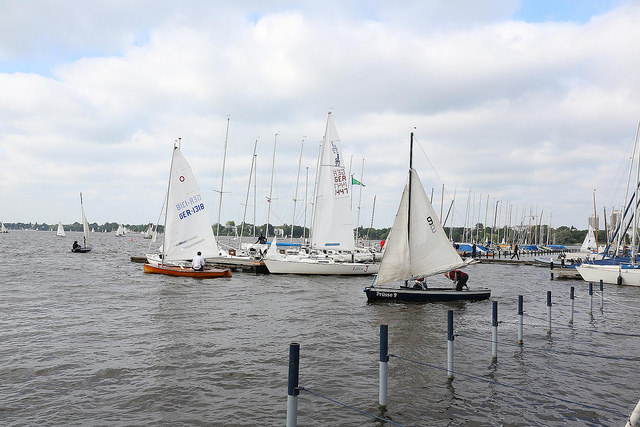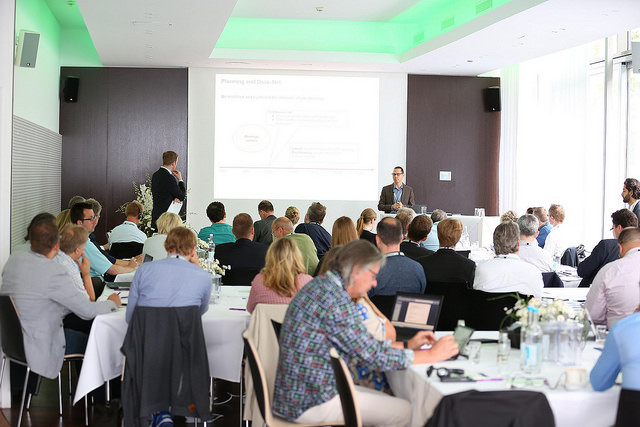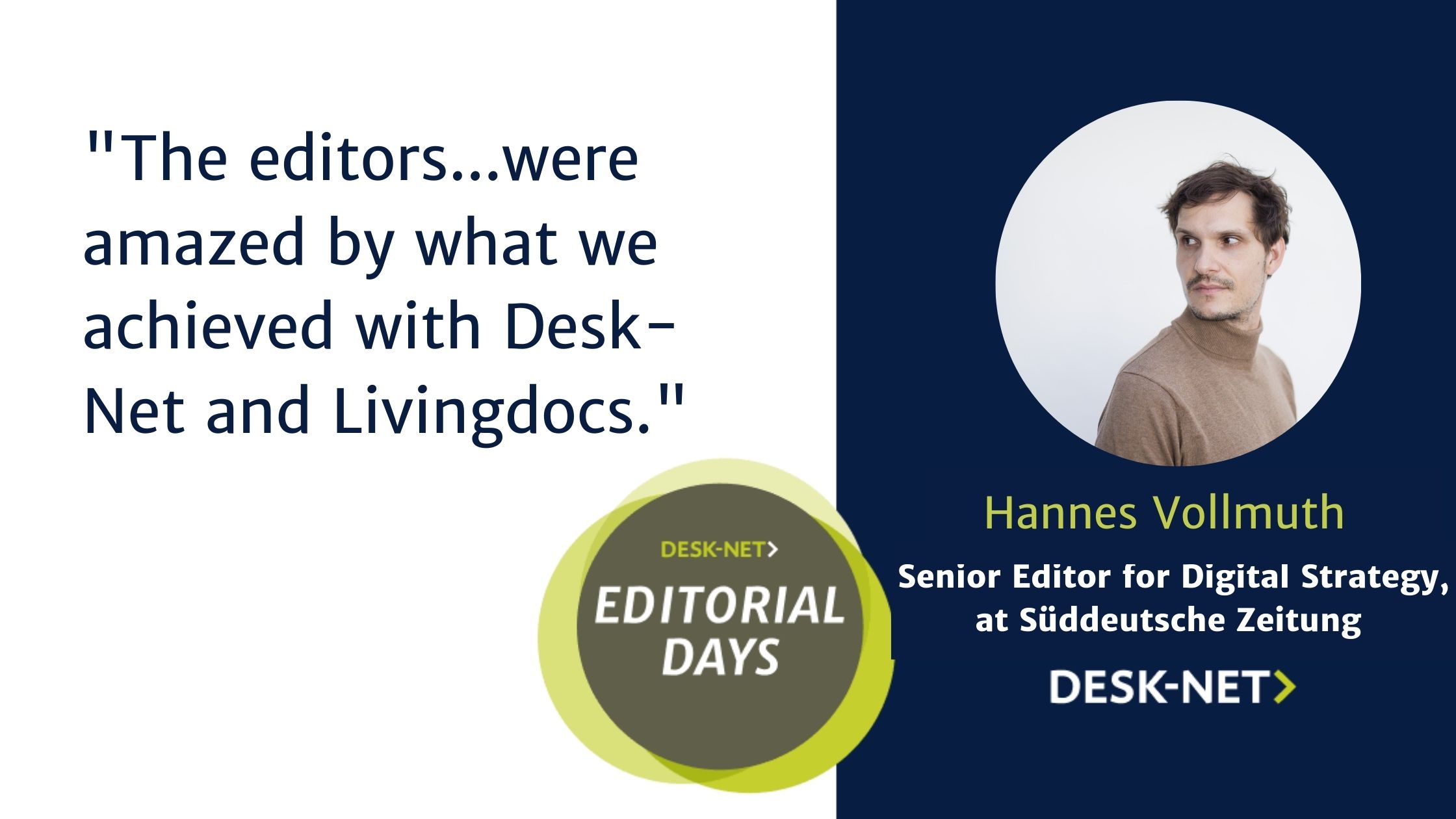Editorial Days 2016 - best practices in editorial planning

With participants from seven countries, and some travelling from as far afield as Kenya and the US, Editorial Days 16 had the feel of an international summit on editorial management.
New users such as the LA Times, La Nación of Argentina, and Time Inc. (UK) highlighted global expansion and provided an opportunity to compare notes on editorial calendar needs and best practices from around the world.
Best practice was top of the agenda in every way with the event kicking off with the results of an analysis of customer workflow that reveals different approaches to the scheduling issues of who, why, what, where, and when.
Different types of publishers and newsrooms have adopted different methodologies to get the most out of the Desk-Net's editorial calendars, as Matthias Kretschmer, Desk-Net CEO, explained.

Different clients, differing needs, but there was one constant theme that emerged which was the need for editorial planning; even in newsrooms that have traditionally resisted the idea.
Nobody made that point more clearly than Dominic Ramel, Head of Planning at Berner Zeitung, who explained how an overview of workflow helped make the most of editorial resources.
Scheduling as a means of unlocking resources was also the theme of Time Inc. (UK) which has rolled out a Desk-Net implementation integrated with its editorial commissioning to provide an instant overview not only on content flow but also costs and remaining budget.
Other hands-on examples of cross-media planning came from Robert Dönges who detailed the practicalities and learning points of rolling out Desk-Net across Südwest Presse.
Similarly, André Maerz, Project Manager at the Neue Zürcher Zeitung (NZZ) gave us the benefit of his hard-earned experience in using the editorial management software Desk-Net to trim editorial meetings down to just ten (10!) minutes.

Another key theme of the day was that scheduling software like Desk-Net does not exist in a vacuum but is instead part of a software ecosystem involving content creation, management, curation, and purchasing.
There was a lot of consideration of how these modular systems are proving more agile than monolithic CMS systems, helped by the explanations of Gabriel Hase of LivingDocs which has been working with the NZZ.
The issues of integration with other packages rounded off the day with a look at how Desk-Net fits with the likes of WordPress, WoodWing, and EidosMedia, but also the latest generation of newsroom communication tools such as Slack, and Hipchat.
As a taster of the shape of things to come, the afternoon session also saw all the attendees receive an email link inviting them to the beta of Desk-Net on mobile.
The day was a great success and the feedback from attendees helps shape the Desk-Net of the future - a future that is emphatically modular, and mobile.
Interested in a topic? Case studies of all speeches will be published on our Desk-Net blog over the next weeks.



